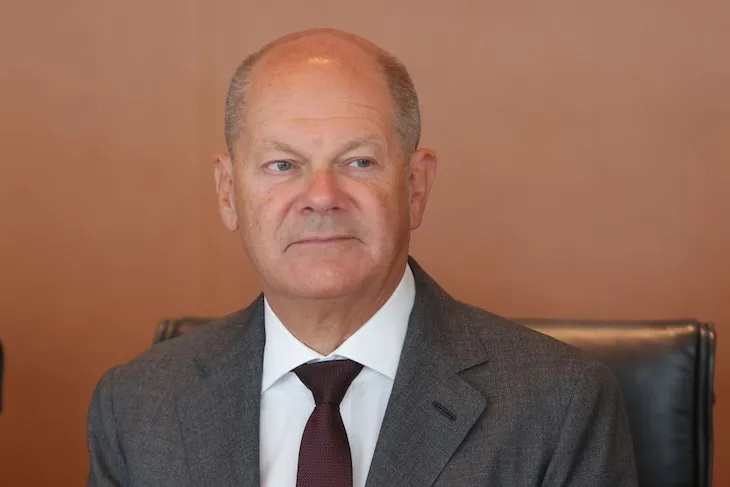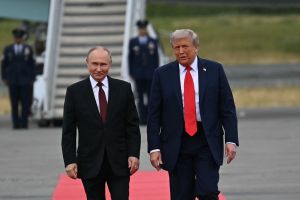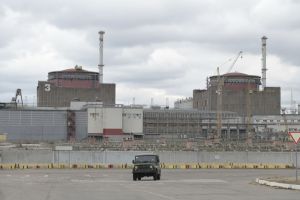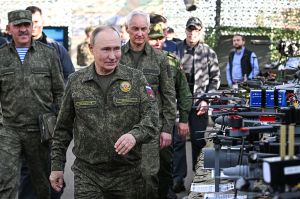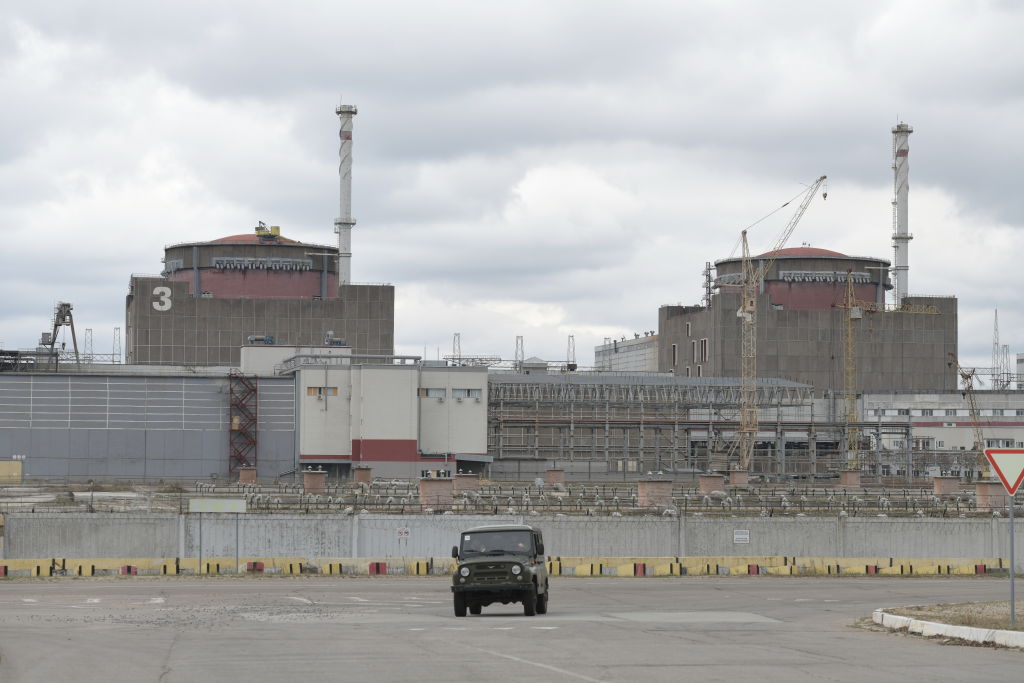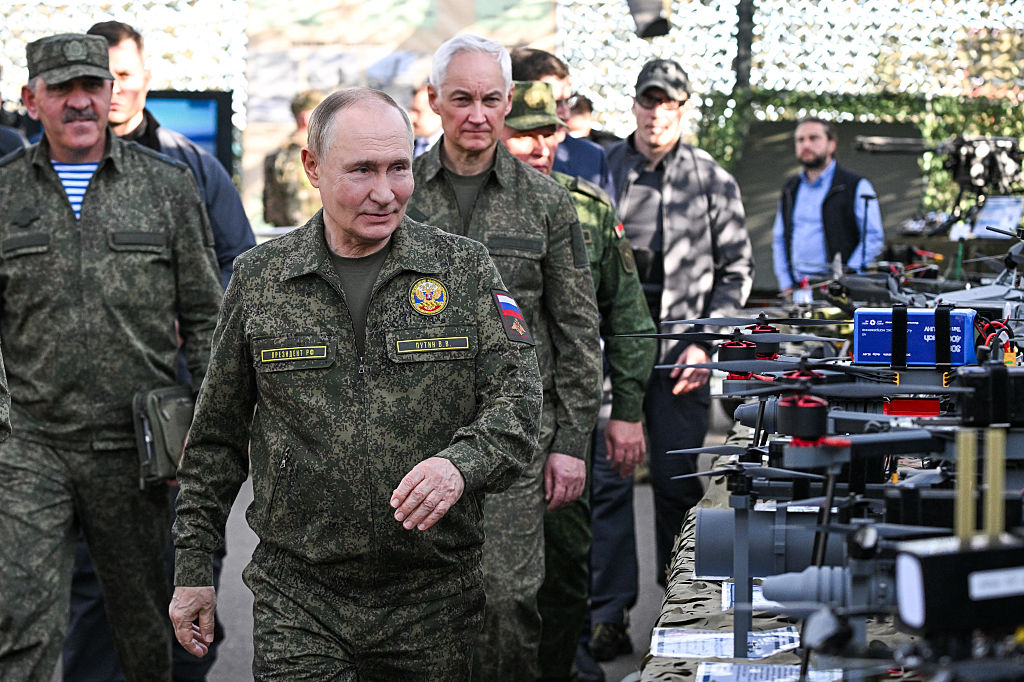Germany is Ukraine’s biggest military donor in Europe. On paper, it appears determined to ensure that Vladimir Putin’s act of aggression does not pay off. But now a German newspaper has seen documents suggesting Berlin wants to halt new support for Kyiv.
According to the newspaper Frankfurter Allgemeine Zeitung, Germany’s finance minister Christian Lindner sent a letter to Foreign Minister Annalena Baerbock and Defense Minister Boris Pistorius to inform them that “new measures” in aid of Ukraine’s struggle to survive may only be approved if “funding is secured.” Lindner urged both his colleagues to “ensure that the set upper limits are adhered to.”
The opposition has accused Scholz of playing party-political games with the Ukraine war
This means existing commitments will still be fulfilled, but long-term supply can’t be guaranteed. The government has previously indicated that it is hoping new sources of funding may be covered through the use of frozen Russian assets. But nobody seems to know when the funds will be made available or “if that’s even possible legally,” as one spokesperson for Olaf Scholz’s Social Democratic Party admitted. The ruling coalition had already decided to cut regular aid to Ukraine by half next year and down to less than one-tenth of the current amount by 2027.
One would assume Berlin’s decision to freeze new military aid to a live conflict in Ukraine is big news, worthy of an explanation or at least a formal announcement. Instead, the public found out about this major shift in foreign and security policy through an analysis of non-public documents by journalists.
Alternative funding may be found from other sources but for now it means that the ministry of defense can’t go ahead and order supplies from the arms industry to supply Ukraine, since the funding is not secured. This includes ammunition and replacement parts for weapon systems that have already been delivered, potentially rendering them useless very soon. It also includes an anti-aircraft system supplied by the company Diehl Defense, which Pistorius is said to have wanted but didn’t get the funding for.
Chancellor Scholz was on a three-week holiday when the news broke but is said to have approved the policy change in an effort to cap public spending. The timing and non-public nature of the directive suggests that it was supposed to pass unnoticed. Apart from anything else, Scholz had promised at the beginning of the year that Germany would help Ukraine “as long as it takes” — a phrase he said in English presumably for international consumption.
It hardly paints a picture of consistency and determination if he has his finance minister dictating foreign and defense policy to the relevant ministries.
Despite the huge implications of this move, a government spokesperson tried to talk down the implications of Lindner’s letter on Monday, arguing that “the chancellor’s word still stands: we will continue to support Ukraine as long as it takes.” But Scholz returned to work on Monday to find that many people find that difficult to believe.
The economy reacted to news of the letter with shares in German defense companies dropping, with some down by 8 percent. Colleagues from within Scholz’s own party dished out scathing criticism. Michael Roth, chair of the parliamentary foreign affairs committee, called the document a “fatal signal”!and warned that “we can’t make our security dependent on budget pressures.”
Fiscal prudence is certainly one reason why Scholz and Lindner may have gone down this route. Under Angela Merkel, Germany enshrined the so-called debt-brake into its constitution which limits the federal deficit to 0.35 percent of GDP — the strictest rule on borrowing of any G7 country. To change this Germany would either have to declare the war in Ukraine an emergency or remove the debt-brake from the constitution — which requires a two-thirds majority by each of the two houses of parliament. Both seem impossible to pull off by a coalition teetering on the brink of collapse. So the only option is to balance the books.
The opposition has also accused Scholz of playing party-political games with the Ukraine war. Roderich Kiesewetter, of the Christian Democratic Union (CDU), which is currently leading in the polls, implied that Scholz had “broken his promise” to support Ukraine ahead of regional elections in three eastern German states in September where the public mood is far more critical of arming Ukraine. In two of those states, Scholz’s SPD is struggling for its survival as a regional parliamentary party. Looking at the precarious situation for the chancellor’s party in the east of the country, Ralf Fücks from the Greens speculated that it “seems again as though the regional elections are more important than Germany’s international responsibilities.”
The government stringently denies that it is scaling down aid to Ukraine “for any domestic policy aspects” but it is undeniably the case that Scholz has begun to portray himself as a “peace chancellor.” During the campaign for the EU elections posters appeared featuring him with the slogan “Secure Peace. Vote SPD.”
Since his return from the summer holidays, Scholz has tried to row back on all this. In a TV interview broadcast on Tuesday evening he insisted that his promise to help Ukraine as long as it takes wasn’t wavering “at all” and emphasized again that Ukraine will get funds from elsewhere.
Regardless of whether other sources of funding for Ukraine can be found, the message from Berlin couldn’t be clearer: the German government doesn’t consider the war a top priority. With German society so divided on aid for Ukraine and with the financial straightjacket of the debt-brake restricting fiscal flexibility, domestic damage limitation has taken center-stage for Scholz.
Before he went on holiday, the chancellor had announced that he wants to seek re-election next year despite his gloomy approval ratings. Even in his own party only a third of members want him to run again, according to polling. At the same time his three-way coalition with the Greens and the Free Liberals is at breaking point. In a recent interview, Omid Nouripour, co-leader of the Greens, called the coalition his own party belongs to a “provisional government” of the post-Merkel era.
But polling suggests that if the coalition broke apart now and new elections took place, the ruling parties would only gain less than a third of the vote combined, while the center-right Christian Democrats would win with nearly the same amount on their own. Alternative für Deutschland would come second with up to a fifth of the vote share. There have only been two German chancellors since World War Two who didn’t manage to achieve a second term, and after sixteen years of Angela Merkel’s rule, Scholz would likely take his own failure to stay on as a personal blow.
This complicated and critical point in German post-war history has seen Olaf Scholz flip-flop between support for Ukraine and reluctance to help ever since the war began. At first, Scholz received a standing ovation when he gave a rousing speech in the German parliament in favor of aiding Ukraine, describing it as a Zeitenwende, a turning point for his country. Now, he is reluctant to deliver weapons to Ukraine, and is demanding more support from other European countries. Scholz has become so famous for saying one thing with apparent determination and then finding a reason not to do it, that his name has become a verb that means prevarication in Germany. In both English and German, you can now tell someone to stop “Scholzing.”
Putin is unlikely to care why this latest rift in Germany’s ruling coalition has led Scholz and Lindner to cap funds for Ukraine. The result is the same: an uncertainty that doesn’t allow Kyiv to plan for the future or negotiate with Russia from a position of strength. As many of Scholz’s critics have pointed out, the resulting loss of deterrence is deeply damaging for European security overall. Ultimately, Germany is not only harming Ukraine with these cuts but itself too.
This article was originally published on The Spectator’s UK website.



